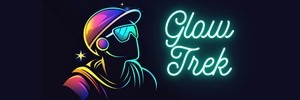Let me take you on a little whimsical journey through the quirky and often bewildering world of medicine from back in the day. Imagine this: you’re not feeling your best, and it’s the 1800s. What does the doctor suggest? Leeches. Yes, that’s right—those slippery, slithering creatures were once hailed as medicinal marvels. It kind of makes you want to give a grateful hug to modern medicine, doesn’t it?
You see, leeches weren’t just a bizarre choice—they were all the rage! Back then, the medical bigwigs believed that healing was all about balancing bodily fluids. If you had a fever, more blood meant more pesky stuff to rid yourself of. And leeches? They were the trusty little critters for the job. I can just picture a doctor earnestly telling a patient, “Yep, these slimy guys are gonna make you better!” Yikes.
But wait—it gets even wilder when you look back further! Centuries before, medicine was this fantastical blend of magic and folklore. They didn’t have pills, so people relied on charms and folklore like a lifeline.
Laughter Really is the Best Medicine?
Oh, and get this—folks centuries ago stumbled upon something I think we can all agree is still pretty genius: laughter. Yep, laughter was considered great medicine even back then. Imagine a doctor prescribing comedy or a jesting tale to lift the patient’s spirits. Like, can you imagine a doctor today saying, “You need to binge-watch your favorite sitcom, stat!”? As kooky as it sounds, there’s real wisdom in that, don’t you think? A good laugh is indeed a mighty healer.
Potent Potions and Bizarre Brews
And now, let’s delve into the realm of strange brews and potions! Not your average chamomile tea, nope! Picture sipping concoctions with weird stuff like crushed pearls. How about “snail water,” a favorite back in Elizabethan days? I know, sounds gross, right? But people would drink it with hopes of curing their pains. Seems like quite an endurance test compared to today’s quick-fix tablets!
Yet, here’s the kicker—did these odd remedies work? Sometimes, yes! Willow bark, which has the precursor to aspirin, and garlic, a natural antiseptic, prove our ancestors were onto something, even if they didn’t quite get the science bit.
Smoke and Mirrors: The Power of Placebo
Now let’s chat about the mind-boggling power of placebo. A lot of healing was rooted in sheer belief. Think of those little amulets people wore thinking they’d ward off illness. Like carrying a lucky charm, it was more about morale than medicine. But isn’t it kind of amazing what faith can do? Sometimes just believing you’re gonna feel better actually makes you feel better!
Back then, distinguishing what was genuinely helpful from what’s snake oil was like trying to peer through thick London fog. Yet, this set the stage for what we now call the placebo effect. Turns out, when you expect something to work, it just might!
Ancient Healing Meets Modern Understanding
Taking a stroll down this medical memory lane, filled with superstitions and shards of brilliance, makes me reflect on the relentless human quest for wellness. Our predecessors, with their quirky remedies and hopeful hearts, walked so we could run with today’s precise and safe medicine.
How, you ask, did they survive with those peculiar practices? Perhaps a cocktail of resilience, luck, and maybe a sprinkle of magic. This glimpse into the past highlights how far we’ve come. It’s an ode to the creativity and ingenuity of our ancestors.
So, here’s to those wacky, wonderful times, where medicine was an art form as much as a science. I think the path to healing isn’t about avoiding the trials but rather the wise nuggets we glean along the way—one leech, one laugh, and one peculiar potion at a time. Cheers to that!

